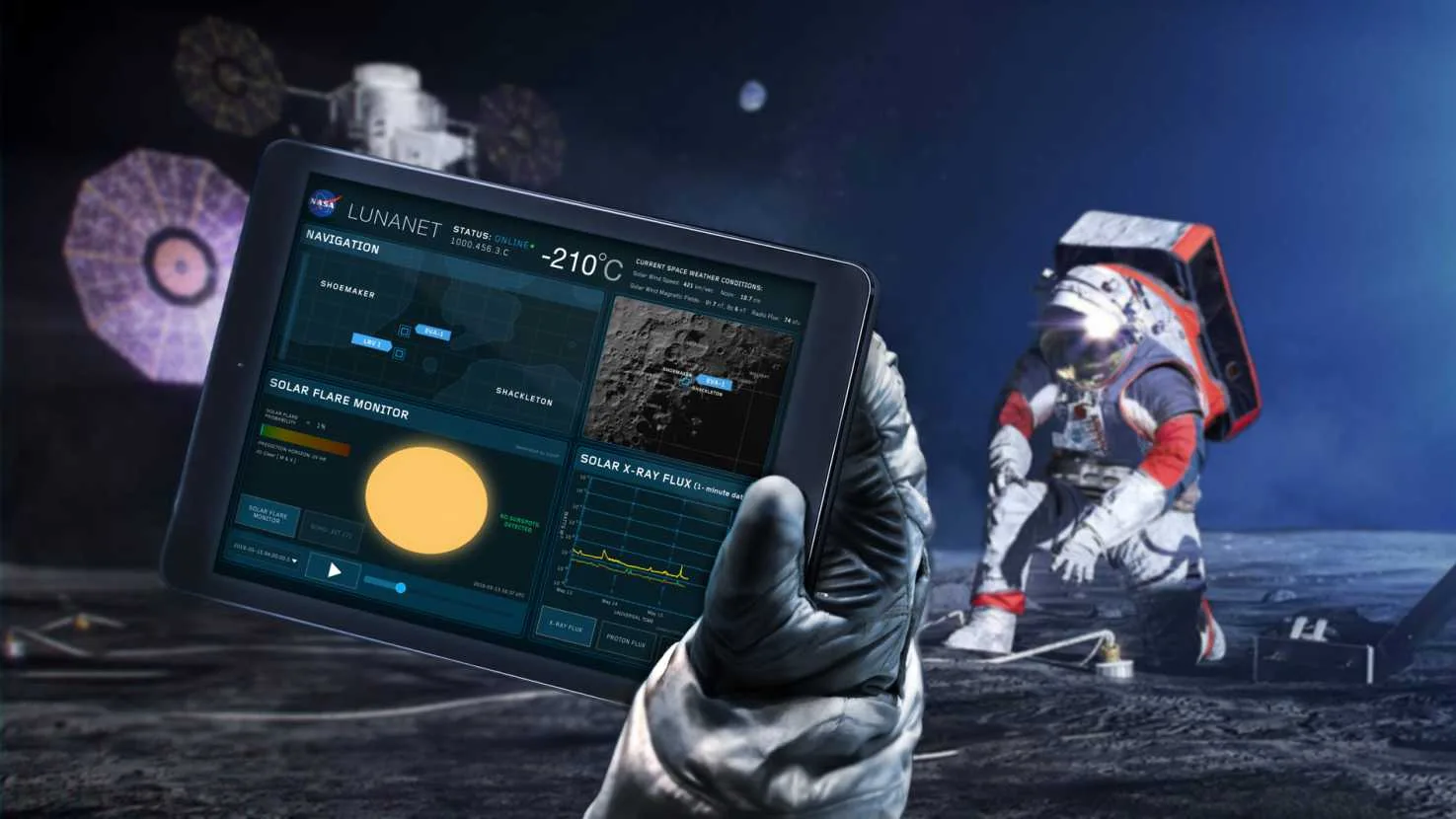SmartSat Cooperative Research Centre, has announced a project agreement to further develop new Search and Rescue (SAR) beacon technologies with partner NASA.
Australia and the United States, as leaders in the field, have a long history of cooperation in Search and Rescue. In 2020 NASA and SmartSat announced a collaboration to advance satellite-based emergency communications and Search and Rescue, combining communications and navigation technology. This new project deepens the strategic collaboration in this important field.
The project is studying a new search and rescue system for future human exploration on the surface of the moon, known as LunaSAR. Astronaut safety is paramount and the ability to reliably communicate an emergency incident must be maintained, even if other services are not available.
Similar to distress beacons on Earth, this system will provide miniature low power radio beacons mounted on space suits and lunar rover vehicles. The technology will support SOS and two-way messaging over a lunar orbiting satellite constellation.
It will also allow the beacon location to be accurately determined, in the absence of GPS. This information will be provided securely and quickly to both the mission control centre on Earth and the response team on the moon who are able to take immediate action.
Under the agreement, NASA’s Search and Rescue Laboratory (SARLab) at the agency’s Goddard Space Flight Center in Greenbelt, Maryland will bring experts to the project to help guide and review the technical direction.
NASA will also provide access to unique and comprehensive test facilities for assessment of performance of the new technology as it is being developed by SmartSat funded research team, led by industry partner Safety from Space.
The research team will design a new specialised beacon for extra-terrestrial environments based on a new waveform. As well as direct Artemis applications, they will also investigate the potential for enhanced services to extend beyond SAR to broader emergency management such as natural disaster warning systems.
Visiting Adelaide this week, the NASA Search and Rescue office Chief, Dr. Lisa Mazzuca, said NASA is delighted to advance technology in this field, which will allow our astronauts exploring the Moon to do so knowing they have a system focused solely on their safety.
“This is pioneering work that takes such a dedicated international partnership to get to fruition.” said Dr Mazzuca
Dr. Mazzuca’s SAR team also has the full support and sponsorship of the Space Communications and Navigation (SCaN) Program at NASA Headquarters in Washington, through Mr. James J. Miller, Deputy Director for Policy & Strategic Communications within SCaN.
“Australia is a unique location with many skilled and talented technologists who are fully capable as a full international partner of making major contributions to safeguard astronauts.”
“We are proud to work with such like-minded experts to ensure the safety of our future astronaut corps.” she said
Whilst Dr Mazzuca is in Adelaide, SmartSat is meeting with a number of space industry organisations and emergency services representatives to discuss applications for the search and rescue beacon technology in both terrestrial and space environments.
SmartSat CEO Andy Koronios said “This agreement is not just a fantastic development for Safety from Space’s low-power, high-efficiency safety technology, it signals that Australia’s space sector is developing globally important technologies.”
NASA has been instrumental in the development journey for this essential safety technology – and while it is early stages, we now have the further potential of this Australian-developed tech playing an important role in Lunar and Martian exploration missions under the Artemis program.”
“We are pleased to welcome Lisa to Adelaide, to help further develop a project which is an example of the ground-breaking research projects SmartSat is helping to foster.”
“This particular collaboration, with our research partners Safety from Space, the University of South Australia and Flinders University, demonstrates the potential for Australia to develop critical space technologies from our world-leading research sector.” said Koronios
Safety from Space’s Co-Founder Dr Mark Rice said having had the support of NASA to modernize our second-generation beacon for use on Earth, we are delighted to be entering into an exciting new phase of our development.
“This agreement will open exciting new opportunities for our technology for users, including emergency management professionals and first responders, as well as helping us to develop important safeguards for astronauts on space missions.” he said







